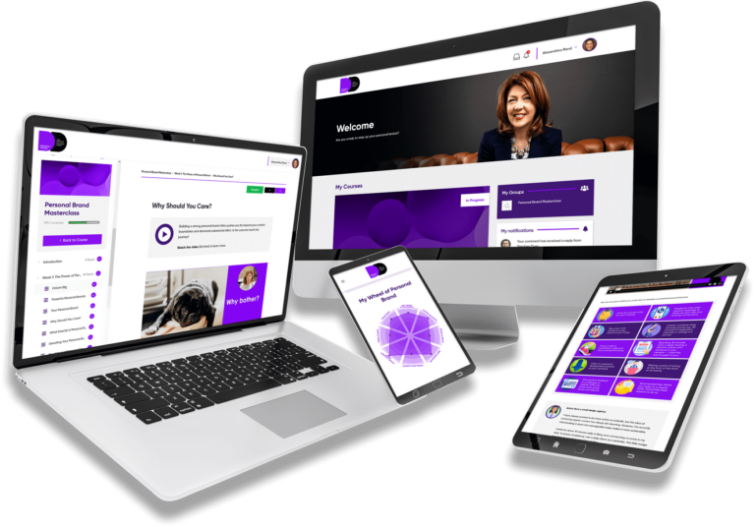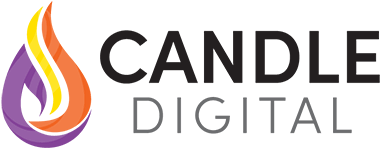What will the 2020s mean for training providers?

The world in 2020 feels very different to the world in 2010 – particularly from a technological perspective.
In our personal lives, many of us no longer call for taxis, we just swipe and an Uber turns up. We document our lives on Twitter, Instagram and LinkedIn. And, if we have a question, we can simply ask Alexa.
From a professional perspective, technology has made it easier to work flexibly (it’s just as easy to work from home as it is from the office), accelerated communication (our team regularly use Slack and WhatsApp), and changed how we use software (many of our key tools are available on subscription via the cloud).
In the past decade, we’ve seen things change for training providers too.
Services like Thinkific and Teachable have given individual trainers and subject matter experts more opportunity to put their services online. And our clients are increasingly seeing complementing face-to-face training with online learning as a way to add more value to their customers, increase impact on learners and ultimately help them stand out from the crowd.
So, looking ahead, what will the 2020s mean for training providers?
We peered into our crystal ball and made some predictions:
1. Blended learning will increasingly become the norm
As more and more face-to-face training providers seek to establish a competitive edge, they’ll look to deliver additional value to their clients and learners, and a blended approach (i.e. a combination of face-to-face training and online learning) provides the opportunity to deliver this at scale.
Providers will create digital experiences and resources that support and enhance the training they deliver in the classroom, whilst giving delegates more flexibility and the ability to learn before and after their face-to-face sessions.
2. Training will become one part of a range of solutions
As we all know, changing skills, behaviours and attitudes requires feedback, practice, time and different formats than simple face-to-face training offers.
In the decade ahead, we predict that training providers will begin to offer a wider variety of products and services. They’ll provide a full range of performance consulting, coaching and face-to-face mentoring that supports and complements the training they deliver.
3. Less box ticking, more performance support
Rather than just delivering training to tick a box, organisations will increasingly demand more bang for their buck from their L&D budgets.
There’ll be greater demand for resources that support the development of their employees for the long-term, rather than training that delivers a short-term fix. Expect to see organisations looking for robust and measurable data-based outcomes before they give you their business.
4. 5G will open up new opportunities (that we can’t even predict yet)
The move from 4G to 5G will increase data speeds, enabling rich content to be served more readily and on the move. 5G is set to be as much as 100 times faster than 4G, resulting in a big shift in the amount of data that can be served up.
Expect to see the continued popularity of videos, but also the rise of interactive videos, virtual reality and augmented reality to encourage those lightbulb moments and make learning experiences more collaborative.
5G will also provide the reliability that only hard-wired connections could before. Envisage being able to reach employees that you might have found difficult to train previously due to connection issues.
5. Experiences will usurp content as king
We expect to see a move away from multimedia ‘content creation’ to ‘experience creation’ instead. Rather than simply putting content online, effective learning design will come to the fore to allow learners to role-play, practise scenarios and reflect, instead of just consuming information.
There’s an argument to say there’s enough online learning content already out there, so training providers who can craft interactive, engaging learning experiences that stand out from the crowd will rise to the top.
6. Training delivery speeds will increase
The need to reduce production times for training will see rapid delivery become the norm. Learners will complete online training in several small bursts rather than during one long period of activity.
This will lead to the use of marketing campaign-based initiatives to encourage the uptake and completion of online training, e.g. delivering electronic nudges to remind users to complete their next module.
So … what does this mean for you?
With these predictions in mind, here’s how you can prepare your training business for the 2020s:
1. Take your expertise online
If you’re not already delivering your expertise online, you should be.
Taking your training online and providing a blended offering has heaps of benefits. Not only will it allow you to provide extra value for your existing face-to-face learners, it can also help you reach new customers and grow your business.
2. Tailor your offering
If you’re offering a one-size fits all approach to training, you may be in for a shock. This decade, you’ll need to make your offering more flexible, bespoke and tailored to your target audience.
To do this, begin by fully getting to know your audience. We find that creating a customer persona helps.
Once you’ve done this, it’s time to serve up relevant experiences and resources your customers will enjoy. In an online world, this can be delivered through personalised learning journeys that are unique to each individual learner.
3. Make a long-term impact
Simply transferring your knowledge to your learners is no longer enough.
Skills take time to develop, so interaction with your training company should take place over time too.
Develop your offering so that it provides a long-term impact, perhaps by complementing it with coaching or mentoring, or supplementing it with online courses and resources that can reinforce what’s learnt in the classroom.
4. Make it memorable
To stand out from the crowd and make your training an experience, rather than just a knowledge transferring exercise, incorporate scenarios into your online training.
Give your online learners real-world scenarios to help them develop their skills and put their new-found knowledge into practice. For example, rather than asking them to recall information about a subject, give them the opportunity to practise their knowledge in interactive video scenarios.
Also, lean on marketing principles to help bring a campaign-based approach to your training. The more impact you can make on your learners, the more likely your client will be back for more.
How do you think training will change in the 2020s? Send us a tweet!
Is your training company ready for the next decade? Check out your potential by taking our quiz.
Fresh Insights Direct to Your Inbox
Enjoyed this article?
Join the Candle Digital Mailing List
You’ve Mastered Your Craft. Now Scale It.









